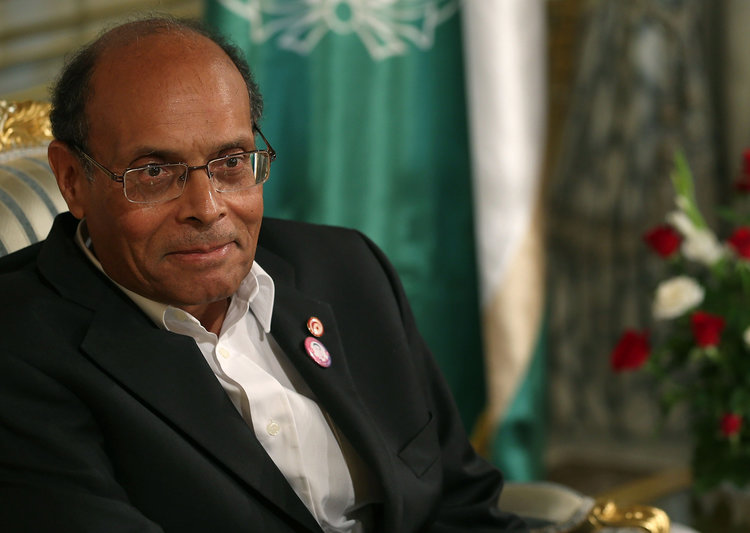By Omnia Al Desoukie
CAIRO: Marking an end to the 23-year ban on his entry to Egypt, Sudanese Islamist political leader Hassan Al-Turabi said he was not waiting for an invitation to come meet with the different political forces and learn about the “New Egypt.”
During his visit, 79-year-old Al-Turabi, the Sudanese opposition leader and chief of Sudan’s Popular Congress Party, met with presidential hopefuls, members of the Muslim Brotherhood as well as liberal parties and sheikh Al-Azhar.
Al-Turabi, who was accused of planning an assassination attempt against former president Hosni Mubarak in the Ethiopian capital Addis Ababa in 1995, came to Egypt in hope of providing advice to the Egyptian authorities and people after the January 25 Revolution.
In a lecture given at Cairo University on Tuesday, Al-Turabi warned against chaos in Egypt during the interim period if people do not unite together.
“It’s dangerous that after all these oppressive years, people gaining their freedom might send the country to chaos and that’s why we need to think about ways to create social and individual justice without chaos,” said Al-Turabi.
Regarding Islamic movements who call for an Islamic state, the Sudanese veteran Islamist said that during the early days of Islam, people separated between religion and the state.
“People voted for their caliphate, for the first time men and women could go and vote. If we [Arab countries] had followed their path, we could have been much better by now,” he said.
However, he added that fears of an ignorant Islamist takeover in Egypt can be realized if the country falls into chaos.
“With the communication technology era we are living in, there is nothing called Islamic, Arab or even African world. It’s one world now and everyone’s opinion is freely being expressed to others,” added Al-Turabi.
He explained that Islamic movements around the world are more flexible than before, a change that is driven by people rather than the political or cultural elite only.
He warned that given this state of technology and understanding that all Arab revolutions are “void,” meaning that revolutionaries do not know exactly what they want, hence the possibility of a rise of another dictator is highly expected.
“Take for example the French Revolution which led to Napoleon Bonaparte, a worse ruler than King Louis XVI,” said Al-Turabi who stressed that “Arabs should not repeat the same mistake.”
“If chaos prevails an army officer is more likely to come to power to bring stability,” he said.
Taking the blame
Al-Turabi, who also served in the Sudanese government’s high rankings, described the secession of the south as the “biggest tragedy.”
“It’s painful when people think that [implementing Sharia] leads to separation of state like what happened in Sudan and that I am the one responsible for such mistakes but I do not know the extent of this responsibility.’
“I urge people to refrain from throwing the load of all the sins of the Sudanese government on me,” he added.
Al-Turabi masterminded the Islamist-backed coup that brought Sudan president Omar Al-Bashir to power 1989, who is now on the International Criminal Court’s wanted list due to war crimes.
However, in 1999 Al-Turabi was ousted in an internal power struggle that saw his former acolytes in the Islamic movement turn against him. He later formed the Popular Congress Party (PCP) and joined the ranks of the opposition against Al-Bashir’s regime.
Asked by a professor in the faculty of economics and political science whether his views have changed since then, Al-Turabi asserted that his views have changed given the change in the world today.
“Now we have to deal with the world with an open mind,” he said.
Libya and Yemen
During the symposium, Al-Turabi said that he tried to mediate between Libyan leader Moammar Qaddafi and the rebels to resolve the current crisis.
“It wasn’t an invitation from Qaddafi or the rebels but from Libyan authorities,” he said.
He announced his intention to intervene to solve the crisis in Yemen given his close relationship with the Yemeni’s president Ali Abdullah Saleh, however Saleh was injured in an attack before he could take any steps.
“The worst thing about Yemen’s revolutionaries is that they don’t know what they want for Yemen except that Ali Abdullah must leave, if you ask them do you know what do you want next for your country they will say nothing except Ali Abdullah’s departure,” he said.
Al-Turabi emphasized that despite the proliferation of arms in Yemen, the revolution will end peacefully like the Egyptian one.
